
Sustaining Agribusiness in the Midst of Economic Crisis in Nigeria
by ONIFADE, Precious Abimbola Federal University of Agriculture, Abeokuta (FUNAAB), Nigeria
INTRODUCTION
Nigeria is endowed with abundance of arable land with varieties of agricultural produce such as palm oil, cocoa, groundnut, beans, melon, corns, rice, among others. As at 1960, the agricultural sector contributed over 60% to the GDP despite the reliance of Nigerian peasant farmers on traditional tools and indigenous farming methods, and these farmers also produced over 70% of Nigeria’s exports and 95% of its food needs. However, the root cause of crisis in Nigeria agriculture lies in the total neglect by successive government through payment of lip services to the sector. Since the discovery of oil, there was focus shift from being an agriculture - dependent country to a crude oil - dependent nation.
 Nigeria has been faced with a lot of economic problems in the recent years, coupled with the effects of the COVID – 19 pandemic, and this problem has in one way or the other affected the sustainability and development of Agribusiness. The Nigeria Bureau of statistics [NBS] states that Nigeria is at its worst economic recession experience in the past 29 years. The agribusiness sector of the Nigerian economy is not spared from the scorch of this economic crisis as evident in the high cost of inputs in the farming business.
The agribusiness sector in Nigeria includes all farms and firms involved in producing, harvesting, packing, processing, preserving, distributing, marketing, and disposing of food and nonfood agricultural products. Those activities could be classified into the following categories:
Nigeria has been faced with a lot of economic problems in the recent years, coupled with the effects of the COVID – 19 pandemic, and this problem has in one way or the other affected the sustainability and development of Agribusiness. The Nigeria Bureau of statistics [NBS] states that Nigeria is at its worst economic recession experience in the past 29 years. The agribusiness sector of the Nigerian economy is not spared from the scorch of this economic crisis as evident in the high cost of inputs in the farming business.
The agribusiness sector in Nigeria includes all farms and firms involved in producing, harvesting, packing, processing, preserving, distributing, marketing, and disposing of food and nonfood agricultural products. Those activities could be classified into the following categories:
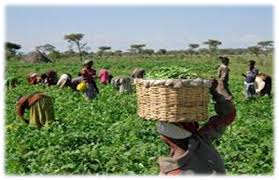 Also, sustainability will not be effective without implementation. The government are to implement policies that would create a thriving environment. Information and funds need to get to the actors (farmers). To sustain the programme, proper supervision of the farmland and progress report is necessary from those that got assistance from the government. Otherwise, it will fall back like the old saying that “government money is no person’s money.”
Also, sustainability will not be effective without implementation. The government are to implement policies that would create a thriving environment. Information and funds need to get to the actors (farmers). To sustain the programme, proper supervision of the farmland and progress report is necessary from those that got assistance from the government. Otherwise, it will fall back like the old saying that “government money is no person’s money.”
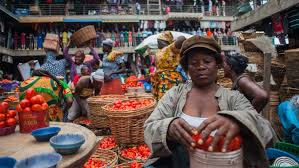 Small and Medium Enterprises [SMEs] are a worthy key factor to sustain Agribusiness in Nigeria because generally SMEs are viewed as the backbone of an economy because of their role in lessening poverty, employment creation, foreign trade promotion and technique innovation and facilitation equitable distribution of income. The recession isn’t helping matters and the attitude of the government towards SMEs is the greatest challenge. Until the government realizes that sustainability of Agribusiness starts with the rapid growth of the SMEs, especially in the rural areas, then there is no way forward for sustainability.
Small and Medium Enterprises [SMEs] are a worthy key factor to sustain Agribusiness in Nigeria because generally SMEs are viewed as the backbone of an economy because of their role in lessening poverty, employment creation, foreign trade promotion and technique innovation and facilitation equitable distribution of income. The recession isn’t helping matters and the attitude of the government towards SMEs is the greatest challenge. Until the government realizes that sustainability of Agribusiness starts with the rapid growth of the SMEs, especially in the rural areas, then there is no way forward for sustainability.
 Nigeria has been faced with a lot of economic problems in the recent years, coupled with the effects of the COVID – 19 pandemic, and this problem has in one way or the other affected the sustainability and development of Agribusiness. The Nigeria Bureau of statistics [NBS] states that Nigeria is at its worst economic recession experience in the past 29 years. The agribusiness sector of the Nigerian economy is not spared from the scorch of this economic crisis as evident in the high cost of inputs in the farming business.
The agribusiness sector in Nigeria includes all farms and firms involved in producing, harvesting, packing, processing, preserving, distributing, marketing, and disposing of food and nonfood agricultural products. Those activities could be classified into the following categories:
Nigeria has been faced with a lot of economic problems in the recent years, coupled with the effects of the COVID – 19 pandemic, and this problem has in one way or the other affected the sustainability and development of Agribusiness. The Nigeria Bureau of statistics [NBS] states that Nigeria is at its worst economic recession experience in the past 29 years. The agribusiness sector of the Nigerian economy is not spared from the scorch of this economic crisis as evident in the high cost of inputs in the farming business.
The agribusiness sector in Nigeria includes all farms and firms involved in producing, harvesting, packing, processing, preserving, distributing, marketing, and disposing of food and nonfood agricultural products. Those activities could be classified into the following categories:
- Agriculture: The agriculture segment of agribusiness includes all of the classical agriculture sector GDP: the primary production of all crops, livestock, forestry, and fishing.
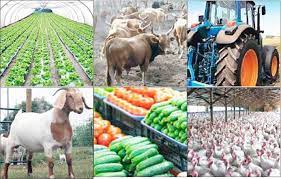
- Processing: The processing segment includes the part of the manufacturing sector GDP that involves processing, value addition, and preservation of food and nonfood agricultural products. Examples include food processing, beverages, tobacco, cotton yarn, and timber.
- Trade and transport: The trade and transport segment includes the part of the services sector GDP that entails transportation, storage, logistics, and trading for agricultural commodities and products between farms, firms, and final consumers.

- Food services: The food services segment is the part of the classical services sector GDP that involves the preparation and sale of food outside the home (for example, restaurants and street vendors).
- Hotels: The hotels segment includes the part of the hotels and accommodation GDP associated with food.
- Inputs: The inputs segment includes all GDP generated during domestic production of the inputs used by farmers and processors, excluding the inputs produced by the above five segments.
- Agricultural development via empowering the rural farmers:
 Also, sustainability will not be effective without implementation. The government are to implement policies that would create a thriving environment. Information and funds need to get to the actors (farmers). To sustain the programme, proper supervision of the farmland and progress report is necessary from those that got assistance from the government. Otherwise, it will fall back like the old saying that “government money is no person’s money.”
Also, sustainability will not be effective without implementation. The government are to implement policies that would create a thriving environment. Information and funds need to get to the actors (farmers). To sustain the programme, proper supervision of the farmland and progress report is necessary from those that got assistance from the government. Otherwise, it will fall back like the old saying that “government money is no person’s money.”
- Private- public partnership and enhancement of market linkages:
- Support for SMEs:
 Small and Medium Enterprises [SMEs] are a worthy key factor to sustain Agribusiness in Nigeria because generally SMEs are viewed as the backbone of an economy because of their role in lessening poverty, employment creation, foreign trade promotion and technique innovation and facilitation equitable distribution of income. The recession isn’t helping matters and the attitude of the government towards SMEs is the greatest challenge. Until the government realizes that sustainability of Agribusiness starts with the rapid growth of the SMEs, especially in the rural areas, then there is no way forward for sustainability.
Small and Medium Enterprises [SMEs] are a worthy key factor to sustain Agribusiness in Nigeria because generally SMEs are viewed as the backbone of an economy because of their role in lessening poverty, employment creation, foreign trade promotion and technique innovation and facilitation equitable distribution of income. The recession isn’t helping matters and the attitude of the government towards SMEs is the greatest challenge. Until the government realizes that sustainability of Agribusiness starts with the rapid growth of the SMEs, especially in the rural areas, then there is no way forward for sustainability.
- Efficiency of the Agricultural value chain:
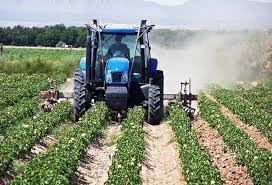
- Collaboration among agribusiness owners
References
Armstrong E. Ogidi (2017): Agribusiness vs Economic Growth: Whither Nigeria. https://www.academia.edu/33465399/Agribusiness_vs_Economic_Growth_Whither_Nigeria Elliot Mghenyi, et.al (2022): Transforming Agribusiness in Nigeria for Inclusive Recovery, Jobs Creation, and Poverty Reduction Policy Reforms and Investment Priorities. International Bank for Reconstruction and Development / The World Bank. https://openknowledge.worldbank.org/bitstream/handle/10986/37132/9781464817243.pdf?sequence=1 Ndidi Nwuneli (2020): Covid 19 strengthening West Africa’s fragile food ecosystems. Business Day Newspaper.https://businessday.ng/opinion/article/covid-19-strengthening-west-africas-fragile-food-ecosystems/ Ojuolape (2016): SMEs Can Propel Nigeria’s Economy out of Recession. https://www.thisdaylive.com/index.php/2016/11/01/ojuolape-smes-can-propel-nigerias-economy-out-of-recession/ Ștefan Cristian Gherghina, et.al (2020): Small and Medium-Sized Enterprises (SMEs): The Engine of Economic Growth through Investments and Innovation. https://www.mdpi.com/20711050/12/1/347/htm Taiwo Oni & Iyiola Oluwaleye (2019): Sustainability of Nigerian economy through a veritable development of agriculture in rural areas. https://www.researchgate.net/publication/349766673_Sustainability_of_Nigerian_economy_through_a_veritable_development_of_agriculture_in_rural_areasOne thought on “Sustaining Agribusiness in the Midst of Economic Crisis in Nigeria”
Add a Comment Cancel reply
Recent Posts
Editor0 Comments
Does Guava Cause Appendicitis?
Editor0 Comments
Heat stress to threaten over 70% of global agriculture by 2045
Tags
africa
agribusiness
agriculture
animal feed
antimicrobial resistance
aquaculture
banana
biofloc tecnology
bird flu
brazil
cassava
cattle
China
climate change
compost
corn
FAO
germany
GMO
gmo corn
greenhouse
hens
IITA
india
kenya
maize
malaysia
mexico
namibia
Nanotechnology
nigeria
palm oil
pork
postharvest losses
potato
rice
rodents
soil
uganda
US
USDA
vertical farming
wheat
world food programme
Yemen

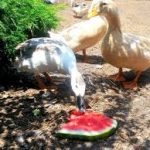


Nice one at bellefu.
I found this helpful as it has widen my knowledge about Agribusiness.
Both the Government and stakeholders have roles to play in sustaining the Agribusiness even at this crucial time and I love how you narrow it down to each character.
Well done